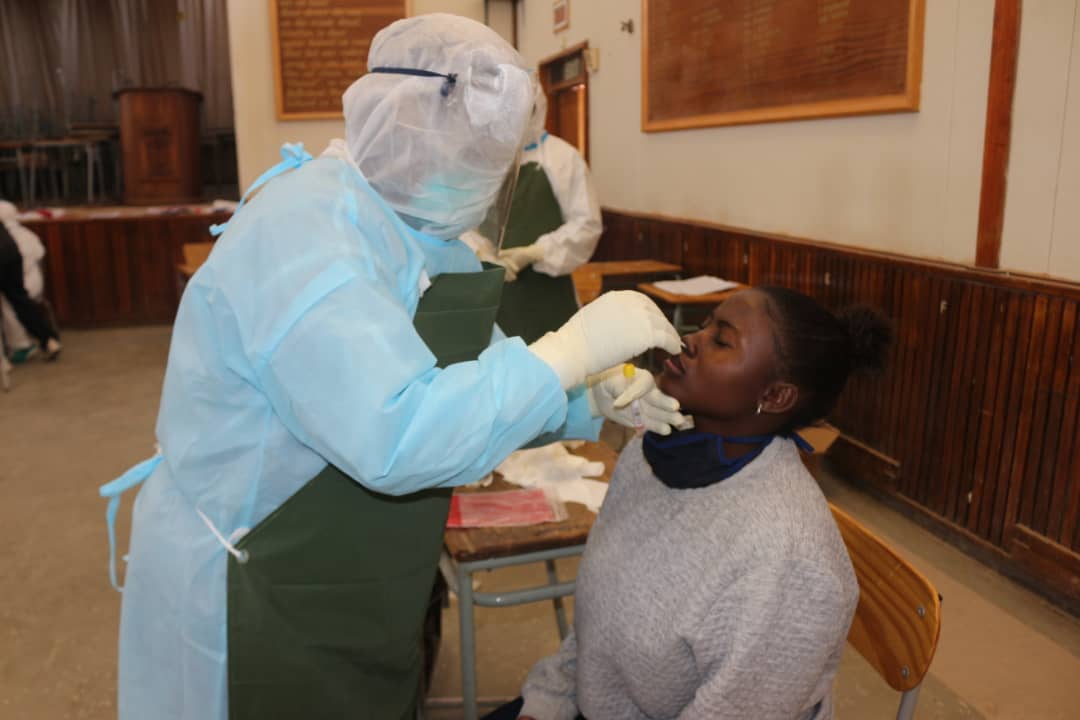Nuusita Ashipala & Eveline de Klerk
With the demand for oxygen increasing at hospitals, the Oshakati Intermediate Hospital is now transferring semi- emergency theatre cases to Oshikuku to cater for this continuous demand.
Acting medical superintendent at Oshakati Asumani Kibandwa said the decision allows for the hospital to continue with its scheduled operations, and to subsequently also cater for patients requiring oxygen. He admitted that the hospital previously experienced a shortage of oxygen, but more cylinders were acquired to assist in these trying times.
The Oshana region has in the last few days seen an increasing number of Covid-19 cases. On average per day, Oshakati admits at least five new Covid-19 patients.
Kibandwa said there are currently 33 Covid-19 patients admitted at Oshakati.
Previously, the hospital admitted between 35 and 38 patients. The hospital has an 80-bed capacity to cater for Covid-19 patients. In the Ohangwena region, director of health John Hango said the supply of oxygen to patients is enough for now.
But the region has taken a decision to increase the oxygen gas cylinders as the cases are on the increase.
“This we did because we have noticed that cylinders are getting finished quickly,
hence we need to increase our stock to
prevent running out of oxygen,” said Hango.
The rate of admission in the region is also relatively low, as many of the patients are recovering at home. As of 14 June, only seven patients were isolated in hospital.
Some of the challenges the region is experiencing, Hango stated, is to timeously follow up on cases and their contacts.
The director said the results are sometimes delayed, and there is likewise a delay in offering prompt counselling to patients who test positive for Covid-19. Equally, healthcare workers are testing positive, thereby creating a shortage. On Covid-19 vaccination, Hango said the inhabitants are still reluctant to get tested. By Monday, only 5 056 people were vaccinated and only 1 016 had taken their second dose. To improve the situation, he said the region will intensify community education and engage community leaders to register people who wish to be vaccinated.
With the increasing number of cases and mortalities, Kibandwa, who took his first shot of the vaccine on the first day it was rolled out to the regions, encouraged Namibians to get vaccinated. He advised the community against getting vaccinated only when they start to show Covid-19-related symptoms.
Some of the patients admitted at Oshakati got vaccinated after displaying symptoms.
“This will not help you anyway because you would already have the virus,” Kibandwa warned. He also dismissed myths that those who are vaccinated will not contract the virus, and advised people to continue observing the regulations in place. He said everyone should adhere to wearing a mask, observe social distancing and avoid large gatherings.
“The situation is not good. The numbers and mortalities are increasing, so please get vaccinated,” Kibandwa reiterated.
‘Hectic’
Meanwhile, a private hospital in the Erongo region yesterday described their Covid-19 situation as hectic as they have to accommodate patients from various parts of the country in need of intensive care.
The general manager of the Welwitschia Private Hospital, Gareth Smith, said they have had to refer patients to other hospitals over the past few months, especially those requiring intensive care.
“The situation with Covid now is rather fluid. But in fact, all our Covid beds and intensive care unit beds earmarked for Covid-19 have remained full for a number of weeks now,” he explained, although he could not share the exact figure yesterday.
He added that their patients vary in severity from those requiring ventilation to those just needing a few days of oxygen before they are discharged.
According to Smith, they also face a challenge with a shortage of experienced staff, and had to recruit new nursing staff to meet the growing demand for hospitalisations.
“A number of ICU-trained nursing staff left to other countries as those countries are granting five-year work permits instead of only just two years, which gives them a little more security,” he stated.
The private facility has also moved its vaccination point away from the Walvis Bay state hospital to allow the public hospital to add more beds for Covid-19 patients.
“From a mental health perspective, we have offered our staff sessions with a clinical psychologist, at the cost of the hospital.
“The clinical psychologist has run a few day-long sessions in the last couple of weeks to help staff cope with the many aspects of trauma that Covid has brought about,” Smith said.
The hospital also keeps a green zone to continue with non-Covid-related health matters.
“Our usual patients still need medical treatment, and we attend to it as much as we can by keeping a green zone area, especially to cater for emergencies other than Covid-19,” he noted.


